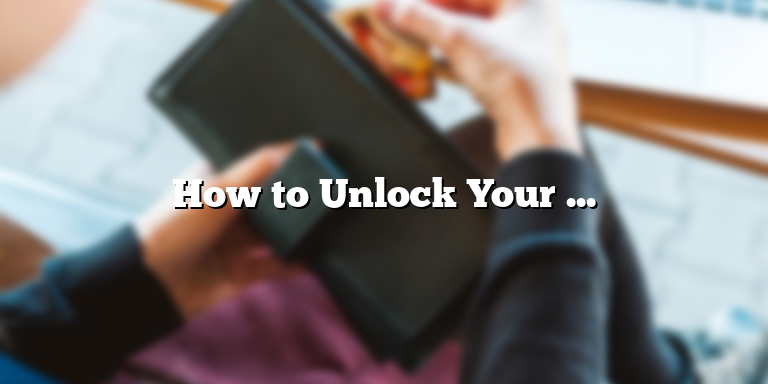
What is a Herniated Disc?
A herniated disc occurs when the soft, gel-like center of a spinal disc leaks out through a tear in the tough exterior. This can cause severe pain and discomfort in the surrounding nerves, as well as numbness and tingling sensations throughout the body. Herniated discs are a common problem that can affect anyone, but are most commonly seen in individuals over the age of 35.
There are a number of different factors that can contribute to the development of a herniated disc, including genetics, lifestyle choices, and traumatic injuries. Obesity, smoking, poor posture, and physical labor can all increase your risk of developing a herniated disc.
Symptoms of a herniated disc can vary depending on the severity and location of the damage. Some people may experience only mild to moderate back pain, while others may suffer from severe pain that radiates down one or both legs. Numbness, tingling, and weakness in the affected areas are also common.
So, how long does it take for a herniated disc to heal?
Symptoms of a Herniated Disc
A herniated disc is a medical condition that occurs when the nucleus pulposus (a gel-like substance) in the intervertebral disc slips through the annulus fibrosus (outer layer) and protrudes outwards, compressing the nearby spinal nerves or the spinal cord. This nerve compression can result in a range of symptoms that vary depending on the location of the herniated disc. Here are some of the common symptoms of a herniated disc:
Pain
Pain is one of the most common symptoms of a herniated disc. The pain can be localized in the area where the disc is located or become more widespread, affecting other parts of the body. For example, if the herniation is in the lumbar (lower back) area, the pain can spread to the hips, buttocks, and legs. Similarly, if the herniation is in the cervical (neck) area, the pain can radiate to the shoulders, arms, and hands.
Numbness and Tingling
Compression of the spinal nerve can result in numbness and tingling in the affected area. For instance, if the herniation is in the lumbar area, the patient may experience numbness and tingling in the legs or feet. If the herniation is in the cervical area, the patient may experience numbness and tingling sensation in the arms or hands.
Muscle Weakness
When the spinal nerves are compressed, the muscles that they supply can also be affected. This can result in muscle weakness in the affected area. For example, if the herniation is in the lumbar area, the patient may experience muscle weakness in the legs or feet. If the herniation is in the cervical area, the patient may experience muscle weakness in the arms or hands.
Limited Range of Motion
A herniated disc can also restrict the movement of the spine, resulting in a limited range of motion. The patient may find it difficult to move certain parts of the body without experiencing pain or discomfort. For example, if the herniation is in the lumbar area, the patient may find it difficult to bend forward or backward. Similarly, if the herniation is in the cervical area, the patient may find it difficult to turn the head from side to side.
Bowel and Bladder Dysfunction
In rare cases, a herniated disc can cause bowel and bladder dysfunction. This happens when the herniation is in the lower part of the lumbar spine and compresses the nerves that control bowel and bladder function. Bowel and bladder dysfunction is a medical emergency and requires immediate treatment.
If you experience any of these symptoms, it is important to seek medical attention right away. Early diagnosis and treatment can prevent the condition from worsening and improve your chances of a full recovery.
Treatment Options for a Herniated Disc
If you have been diagnosed with a herniated disc, you may be wondering about your treatment options. Depending on the severity of your condition, your doctor may recommend a variety of treatment approaches to alleviate your symptoms and speed up the healing process. Here are some of the most common treatment options for a herniated disc:
Physical Therapy
Physical therapy can be helpful for many patients with herniated discs. This therapy is designed to strengthen the muscles in the affected area, improve flexibility, and reduce pain. Physical therapy typically involves exercises that target the muscles and ligaments near the herniated disc, as well as stretches that can help improve range of motion in the spine. Your physical therapist may also use techniques such as massage and electrical stimulation to help relax the muscles in the affected area and promote healing. Depending on the severity of your herniated disc, you may need to undergo physical therapy for several weeks or even several months for maximum benefit.
Pain Medications
Over-the-counter pain medications can be effective at reducing pain caused by a herniated disc. Medications like ibuprofen and acetaminophen can help to reduce inflammation and relieve pain throughout the body. If over-the-counter medications are not effective, your doctor may prescribe stronger pain medications to help you manage your symptoms. However, it is important to note that medication should not be used as a long-term solution and should only be used under the direction of a healthcare professional.
Surgery
If other treatments are not effective and you continue to experience severe pain or other symptoms related to your herniated disc, surgery may be an option. Surgery for a herniated disc typically involves removing a portion of the disc that is pressing against a nerve. This can help to relieve pain and other related symptoms. However, surgery is typically reserved for patients with severe herniated discs that have not responded to other treatments. It is important to discuss the risks and benefits of surgery with your healthcare provider to determine if it is the right option for you.
Overall, there are a variety of treatment options available for herniated discs. The key to successful treatment is working closely with your healthcare provider to develop a comprehensive plan that meets your unique needs and goals. With the right treatment approach, most patients can expect to experience significant improvement in their symptoms and quality of life within a few weeks or months.
How long does it take for a Herniated Disc to Heal?
A herniated disc is a condition of the spine that can cause severe pain and discomfort. The healing time for a herniated disc can vary greatly depending on several factors such as the severity of the injury, age, health, and medical history of the patient.
Factors that Affect the Healing Time for Herniated Disc
The following factors determine the healing time for a herniated disc:
The Severity of the Herniation
The severity of the herniation can determine the healing time of the herniated disc. The more severe the herniation, the longer it will take to heal. If the herniation is mild, the healing time can range from a few weeks to a few months. However, if the herniation is severe, the healing time can extend up to a year or more.
Age
The age of the patient can also affect the healing time. Older patients may take longer to recover from a herniated disc as their bodies are not as resilient as younger patients. However, with proper care and rehabilitation, older patients can also recover from a herniated disc.
Overall Health
Patients with underlying medical conditions or poor overall health may take longer to heal from a herniated disc. Proper nutrition and exercise can help improve the overall health of the patient and aid in the healing process.
Medical History
The medical history of the patient can also play a role in the healing time of a herniated disc. Patients with a history of back problems may take longer to heal from a herniated disc. Proper care and treatment of previous back injuries may help speed up the healing process.
Treatment Options for Healing a Herniated Disc
The following treatment options can help speed up the healing time of a herniated disc:
Rest
Rest is crucial for healing a herniated disc. Patients should avoid any activities or movements that put stress or strain on the back.
Physical Therapy
Physical therapy is an effective treatment option for herniated discs. A qualified physiotherapist can create a customized treatment plan to help the patient strengthen their back muscles and improve their range of motion.
Pain Management
Pain management techniques such as heat therapy, cold therapy, and over-the-counter pain medications can help manage the pain and discomfort associated with a herniated disc.
Surgery
Surgery is an option for severe herniated discs that do not respond to other treatment options. However, surgery is typically considered a last resort and is only recommended in extreme cases.
In conclusion, the healing time for a herniated disc varies depending on several factors. Patients should consult with their healthcare provider to determine the best treatment plan and expected healing time for their specific case.
Preventing Future Herniated Discs
Recovering from a herniated disc can be a long and painful journey. The good news is that there are steps you can take to prevent future occurrences of this painful condition.
Maintaining a Healthy Weight: Excess weight can put significant pressure on your spine, leading to herniated discs. If you are overweight or obese, try to achieve and maintain a healthy weight through a balanced diet and regular exercise. A healthy weight can also reduce your risk of other health conditions.
Exercising Regularly: Regular exercise can help keep your spine strong and flexible, reducing the risk of herniated discs. Strength training exercises, in particular, can help strengthen the muscles that support your spine, reducing the pressure on the discs. However, it’s essential to exercise safely and avoid any activities that could cause injury to your back.
Practicing Good Posture: Poor posture can place undue stress on your spine and increase your risk of herniated discs. Make sure to sit and stand up straight, keeping your shoulders relaxed and your core engaged. If you work at a desk, make sure your workstation is ergonomically designed to support good posture.
Quit smoking: Research has shown that people who smoke are at higher risk of developing lower back pain, which increases the likelihood of developing herniated discs. Smoking reduces the blood supply to your spine, which can weaken the spinal discs and make them more prone to injury. Quit smoking to minimize your risk of not only herniated discs but other diseases as well.
Lifting properly: Improper lifting is one of the leading causes of herniated discs. When lifting heavy objects, use your legs to lift, not your back. Keep your back straight and avoid twisting your spine while lifting. If you are unsure about how to lift an object safely, ask for help or use a dolly or other equipment to assist you.
By following these tips, you can reduce your risk of herniated discs and other spine-related conditions. Remember that prevention is always better than cure, and taking care of your spine now can help you maintain an active and healthy lifestyle.






